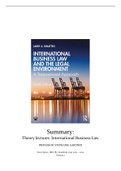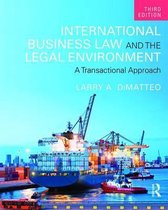Summary
Summary International Business Law Theory Lectures ('21 - '22)
- Course
- Institution
- Book
Comprehensive summary of the lectures for the course International Business Law. Suitable for students International Business. Given by Stephanie Gardner at the Vrije Universiteit Brussel in the academic year .
[Show more]




